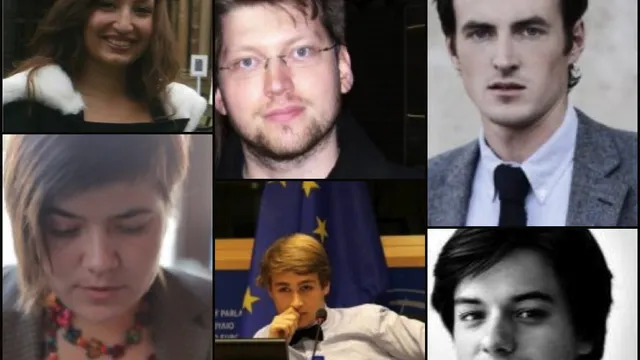‘EU values influence policy for the better’

Op blogs en opiniepagina’s heerst een kleurrijk debat tussen jongeren uit alle lidstaten van de EU. De Italiaanse Isabella Grotto is blij dat Europese normen voorkomen dat Italië migranten op zee reddeloos laat ronddobberen.

Isabella Grotto (22)
Geboren: Italië
Woont: Engeland
Blog: International Political Forum (IPF)
Het IPF is een overzichtelijk forum van jongeren over de hele wereld. ‘Tired of traditional media outlets, we want to tell the stories that matter’. Zonder een politieke kleur geven de schrijvers visies op internationale problemen. Sinds 2012 groeide het IPF naar 200 schrijvers in meer dan 30 landen.
‘EU values influence policy for the better’
As the first signs of spring sweep across Europe, in Italy, warmer weather and fairer seas mean the beginning of the so-called stagione degli sbarchi, the ‘landings season’ which sees increasing numbers of migrants attempt the perilous journey across the Mediterranean towards the peninsula’s shores.
Since the start of 2014, 20,500 migrants have already reached Italy's coasts, with 1,100 landing over the Easter holiday weekend alone.
The debate on immigration inflames political discourse in Italy, with the secretary for the Northern league party recently calling for an end to rescue missions for migrant vessels.
Few issues such as that of migration are capable of simultaneously highlighting the concerns of individual governments and the EU’s importance in supporting and legitimising humanitarian policies.
In a speech to Parliament delivered this month, Home Affairs minister Angelino Alfano reaffirmed that as a great democracy Italy has the duty to guarantee security and will not “let people die at sea in exchange for the Northern league’s extra 500 thousand votes.”
Regardless of how much traction the Northern league might gain, as a member of an international body whose founding principles are those of freedom and solidarity, a cessation of rescue missions remains an entirely implausible alternative for the Italian government.
Italy is committed to ensuring its policies reflect the spirit of the EU community, and when Alfano recalls the country’s standing as a great democracy, it is this responsibility he is implicitly referring to.
Thanks to its alignment with the EU stance, Alfano’s position is elevated above the particularistic interests of national political debate, and bears the legitimacy of the international community.
This evident, concrete importance of EU values, and their ability to transcend changing political trends within member states and influence policy for the better, stands testament to their enduring role as a basic principle in modern society today.
Ga naar de volgende jonge denker: Maria Antică uit Roemenië.